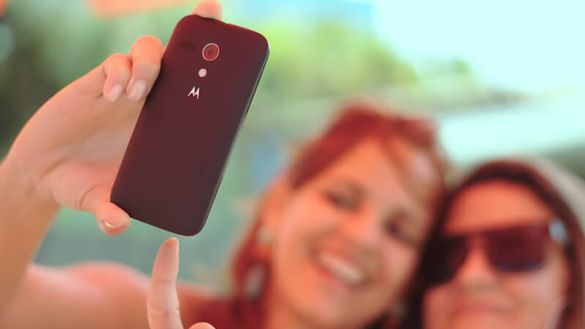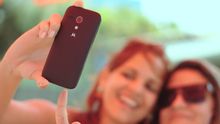 27 Jun 2016
27 Jun 2016

According to recent research released by Vueling Airlines*, 25% of tourists recently admitted to travelling somewhere just to take a photograph to post on social media. With this in mind, and with the recent rise in selfie stick related incidents, Airport Parking and Hotels (APH) has created a guide comparing photography and selfie stick regulations at some of the world's most popular tourist attractions.
The research is available in the Know Before You Go section of the APH website at www.aph.com/selfie-safety and compares photography and selfie stick regulations at 55 of the world's most popular tourist destinations including the Eiffel Tower, the Taj Mahal and Times Square.
Of the 55 tourist attractions, photography is permitted at 52 sites, including the Roman Colosseum in Italy, La Sagrada Familia in Spain, and the Forbidden City in China. At the other end of the spectrum, all forms of photography are banned inside three tourist hotspots: the Sistine Chapel in Vatican City, Masjid Al-Haram in Mecca and Westminster Abbey in London.
With regards to photography requirements, 37 of the tourist attractions researched explicitly list specific regulations for photography, including Universal Studios®, which bans photography whilst on some of the rides. Likewise, flash photography is prohibited in certain areas at six of the tourist attractions researched including the collection rooms at the Musée Du Louvre in Paris and Metropolitan Museum of Art in New York City.
Selfie stick enthusiasts should note that of the 55 tourist attractions researched, 13 ban selfie sticks entirely, including all Disney World® theme parks, the Palace Of Versailles in Versailles and the Roman Colosseum in Rome. Along with selfie sticks, visitors to The O2 Arena in London are asked not to bring large or obstructive photography devices to events such as tablets and SLR cameras.
To keep safe, travellers are asked to keep in mind certain hazards whilst taking photographs or selfies. This includes slippery or rocky surfaces and significant heights at 11 of the tourist attractions researched, particularly the worn-in steps at Acropolis in Athens, the rocky environment at Petra in Jordan, and the steep steps at the Pyramid of Chichen Itza in Yucatan Peninsula. Similarly, travellers should be fully aware that there are no safety barriers in some sections of the Grand Canyon in Arizona and that there are many steps at the Taj Mahal in India, some of which are unsteady underfoot. The O2 Arena in London also reminds visitors to avoid sharing photographs of their event tickets on social media since the unique barcode may be used to sell the ticket online without their knowledge.
To not risk insulting locals and fellow visitors, travellers are reminded to be mindful of where and when they choose to snap selfies. At 10 of the tourist attractions researched, including the Lincoln Memorial in Washington D.C., the Meiji Jingu Shrine in Tokyo and The National September 11 Memorial in New York City, selfies may be considered insensitive and inappropriate.
For further information on Airport Parking and Hotels (APH),
Visit www.aph.com or call 01342 859515.
ENDS
NOTE TO EDITORS
*According to Vueling Airlines, which is available from: http://www.mirror.co.uk/news/uk-news/shocking-amount-british-tourists-prefer-8111277
About Airport Parking and Hotels (APH)
Airport Parking and Hotels (APH) is an award winning airport parking operator and retailer, after winning the Best Airport Parking Company for a sixth year running at British Travel Awards 2015. This year APH also celebrated its 36th year as a retailer and operator of pre-booked airport parking and travel extras. APH offers parking at all major UK airports as well as airport hotels and airport lounges. APH is also a carbon balanced company and has, through support of the World Land Trust, helped purchase more than 1,000 acres of endangered rainforest.
Media Enquiries
Fiona Anderson / Libby Hughes / McCluskey International / 020 8747 2170 / aph@mccluskey.co.uk

